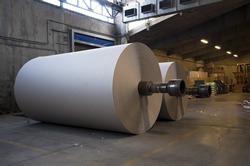Optimising Metalworking Fluids – Good Practice Guide
- provide lubrication;
- cool equipment and machined components;
- prevent surface corrosion of the machined components;
- remove metal fines (swarf) from the machining operation;
- prolong the life of machine cutting tools.
The purchase, management and disposal of metalworking fluids make up an estimated 16% of manufacturing costs in the UK engineering industry. However, many workshops are not getting the best out of their metalworking fluids and could reduce their operating costs significantly by implementing and improving fluid management and control practices. For companies with poor fluid management procedures, savings of 40 – 60% may be possible by implementing proven waste minimisation techniques. Even companies with good fluid management procedures still have the potential to achieve worthwhile cost savings.
Improved fluid management
The benefits of improved fluid management include:
- reduced fluid purchase and disposal costs;
- extended fluid life;
- improved machine performance;
- improved working conditions for operators;
- improved environmental performance.
Reduce operating costs
This good practice guide describes practical measures to help companies prolong the life of their metalworking fluids and reduce their operating costs.
Checklists are provided to help you take action to optimise the use of your metalworking fluids.
The guide stresses the importance of:
- buying good quality fluids from reputable suppliers;
- selecting the correct fluids for different machining processes;
- adopting good housekeeping practices;
- avoiding contamination by tramp oil, particulates, etc;
- monitoring fluid condition regularly and taking corrective action as required;
- making an informed decision about when a fluid is ready for disposal;
- using the most cost-effective fluid disposal option for your site;
- providing training in good practice.
The level of savings that can be achieved by improved fluid management procedures will depend on particular production requirements … request a copy of the full document >>






